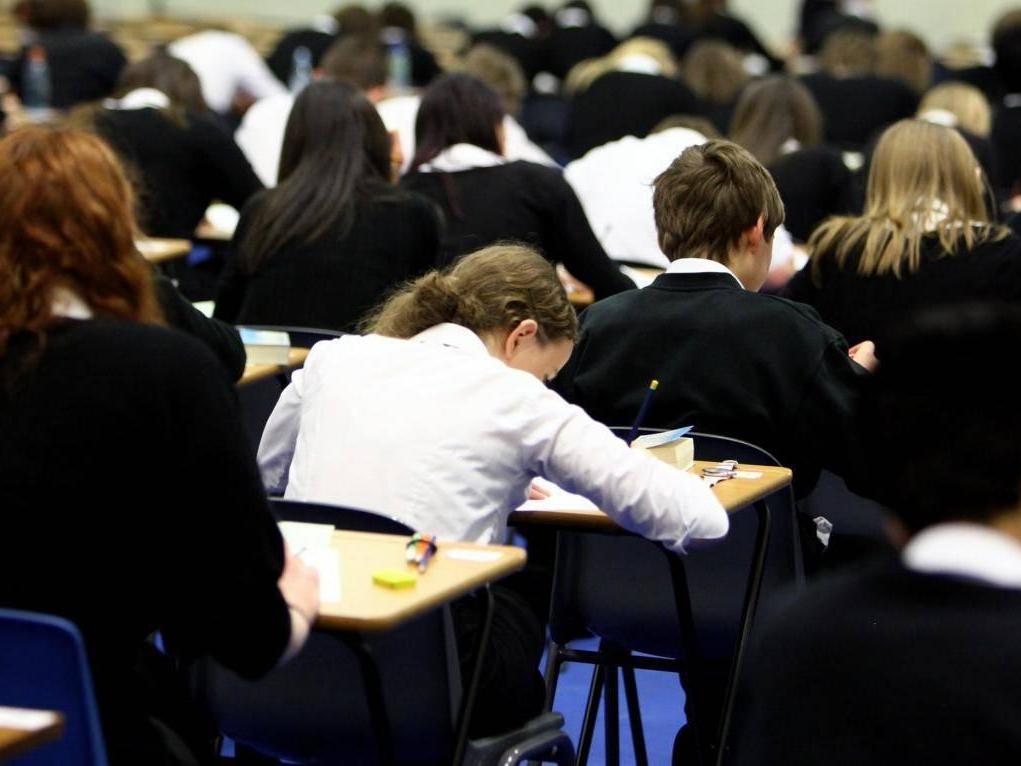One in five grammar schools prepare expansion bids in wake of £50m funding, analysis finds
'Many parents are likely to worry about the destabilising impact on the educational ecosystem in their local area'

Your support helps us to tell the story
From reproductive rights to climate change to Big Tech, The Independent is on the ground when the story is developing. Whether it's investigating the financials of Elon Musk's pro-Trump PAC or producing our latest documentary, 'The A Word', which shines a light on the American women fighting for reproductive rights, we know how important it is to parse out the facts from the messaging.
At such a critical moment in US history, we need reporters on the ground. Your donation allows us to keep sending journalists to speak to both sides of the story.
The Independent is trusted by Americans across the entire political spectrum. And unlike many other quality news outlets, we choose not to lock Americans out of our reporting and analysis with paywalls. We believe quality journalism should be available to everyone, paid for by those who can afford it.
Your support makes all the difference.More than a fifth of existing grammar schools are preparing bids to expand in the wake of £50m funding.
At least 35 selective schools - of which there are 163 in England - are considering a share of the expansion funding announced by the government to help create thousands of new places.
Analysis from campaign group Comprehensive Future calculates that an additional thousand pupils could attend grammar schools a year - if all proposals for expansion are approved.
Campaigners have criticised that spending is going on academic selection during a school funding crisis - and they argue that expanding grammar places causes “serious problems” for nearby secondary schools.
Melissa Benn, chair of Comprehensive Future said: “If these, and further expansions, go ahead, we will see significant changes to our education landscape. Expanding selective school places imbalances local school communities and causes serious problems for nearby secondary schools.”
She said surrounding schools will find their intake changes to create “de facto secondary moderns."
Grammar schools have under a month to submit bids for the £50m fund - which schools minister Nick Gibb has said could fund up to 4,000 places a year. Schools will be able to access cash from September.
As part of the bids to government, existing grammar schools have to set out what action they will take to boost the number of disadvantaged pupils they admit following criticism of a lack of diversity.
Comprehensive Future found consultations for expansions on the websites of 35 selective schools across England - from Kent, London and Essex, to Devon, Manchester, and the West Midlands.
It is possible that other grammar schools are seeking funding but have not put their consultations - which are supposed to run for four weeks - online ahead of the August deadline.
Liam Collins, headteacher of Uplands Community College in East Sussex, said he was “dismayed” to see a Kent grammar school is seeking to offer additional “out of area placements” which will affect his intake.
“[It] is both unnecessary and damaging when we know that comprehensive schools are successful in helping students achieve high outcomes and move onto some of the best universities,” he said.
Ian Widdows, founder of the National Association of Secondary Moderns, told The Independent that the expansion of grammar schools exacerbates the challenges that neighbouring secondary moderns face.
He added: “Not only does this constitute a significant injection of precious capital funding into just grammar schools but it will also inevitably reduce the future funding levels for years to come at secondary moderns due to reduced student numbers.
“All of this is happening at a time when school budgets are already stretched to breaking point and headteachers across the country are talking seriously of an ongoing school funding crisis.”
Geoff Barton, general secretary of the Association of School and College Leaders (ASCL), said they had “deep concerns” about the further expansion of grammar schools.
“The research evidence is very clear that expanding selection does not raise standards overall, and many parents are likely to worry about the destabilising impact on the educational ecosystem in their local area,” he said.
Mr Barton added: “At a time of such financial pressures on all schools, many people will be dismayed that £50m is being ring-fenced for just one category of school.
“A fairer approach would be to target additional school places where they are needed via the many successful schools of all types that parents know and trust.”
A Department for Education spokesperson said: “The bidding round for the Selective School Expansion Fund is still open and any analysis of bids before it closes is complete speculation and not based on official figures.
"We will not know how many additional places will be proposed or how much funding will be bid for until the bidding round closes in August.
“We want good schools to expand, to increase further the number of good school places.
"As we have been clear, all applications to the fund must demonstrate how they will increase access for disadvantaged pupils and work with local schools to improve outcomes for all pupils and give more families access to a good school place.”
Join our commenting forum
Join thought-provoking conversations, follow other Independent readers and see their replies
Comments